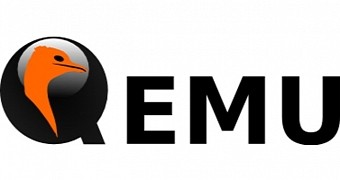A new stable version of the popular QEMU open-source hosted hypervisor, namely version 2.7.0, has been recently released, and it contains over 2,200 commits from 189 authors.
Release highlights of QEMU 2.7.0 include support for Xen paravirtualized USB, multiqueue support for virtio-blk devices, live migration support for virtio-gpu 2D displays, busy-polling support for virtio-net and vhost-net devices, as well as VFIO passthrough support for Intel integrated GPUs (Graphics Processing Units).
Moreover, there's a new management interface to improve CPU (Central Processing Unit) hot plug and unplug, performance improvements to the TCG emulation, making it up to 20% faster, user-mode networking support for RDNSS, DNS6, DHCPv6, and link-local DNS addresses, and support for creating user-mode emulation docker images.
Improved support for ARM, PowerPC, and x86 hardware architectures
In addition to the new major new features mentioned above, QEMU 2.7.0 adds multiple improvements to ARM platforms, such as support for GICv3 and NUMA interrupt controllers to the virtual machine, Xilinx Zynq ZCU102 board implementation through new xlnx-zcu102 machine type, audio and video support over emulated DisplayPort interface for Xilinx Zynq MP, and support for KVM (Kernel-based Virtual Machine) on AArch64 (ARM 64-bit) hosts on Xilinx Zynq.
The PPC (PowerPC) hardware architecture has also received some improvements, among which we can mention CPU hotplug and 64-bit DMA windows for VFIO-based PCI passthrough support for pseries machines, the ability to boot Mac OS 9.1 or higher on mac99 systems, spapr-llan enhancements, as well as various TCG fixes. Moreover, the MIPS architecture received experimental GIC (Global Interrupt Controller) support.
Last but not least, QEMU 2.7.0 adds runtime instrumentation and major refactoring of PCI device hot unplug and emulation for s390 hardware architectures, and implements q35 machine support for IOMMU emulation on x86 systems, along with CPU hot-unplug support. Download QEMU 2.7.0 right now via our website, but you can also install it directly from the main software repositories of your GNU/Linux operating system.

 14 DAY TRIAL //
14 DAY TRIAL //